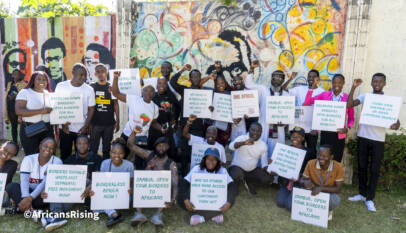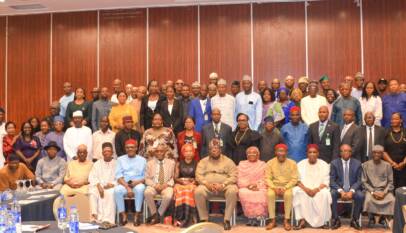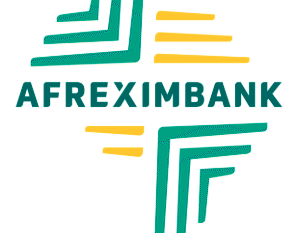AAIPS 2025 Confirms RAMPI as Strategic Partner to Advance Africa’s IP Governance, Enforcement
The Réseau Africain de la Propriété Intellectuelle des Magistrats (RAMPI), or the African Network of Intellectual Property Magistrates, has been confirmed as a strategic partner for the 6th Edition of the All Africa Intellectual Property Summit (AAIPS), scheduled for November 12–14, 2025, in Dakar, Senegal.

This year’s summit, hosted in a member country of the Organisation Africaine de la Propriété Intellectuelle (OAPI), marks a significant milestone in the advancement of Africa’s intellectual property landscape. RAMPI, now a prominent voice in the OAPI region, has earned recognition for its strong commitment to strengthening IP rights enforcement and empowering the judiciary to safeguard the interests of Africa’s creators and innovators.
It would be recalled that the African Continental Free Trade Area (AfCFTA) Secretariat had in May also confirmed a strategic partnership with the 6th All Africa Intellectual Property (IP) Summit. This partnership, which aligns the Summit’s mission with AfCFTA’s ambitious agenda to harmonize intellectual property rules across the continent, promises to be a game-changer for Africa’s IP landscape, facilitating smoother trade, investment, and innovation flows.
Why RAMPI? Why Now?
RAMPI is a judiciary-driven initiative and dedicated to strengthening IP systems through regional collaboration among magistrates. By enhancing judicial understanding and the application of IP law, RAMPI supports fair dispute resolution and more effective enforcement of IP rights across Africa. Its partnership with the 6th AAIPS underscores a shared commitment to building a coherent, inclusive, and robust continental IP framework.
In March 2025, RAMPI signed a formal agreement with OAPI to strengthen collaboration and enhance the capacity of judicial actors across OAPI Member States. The agreement establishes a framework for supporting judicial training and harmonizing IP’s legal interpretations, reinforcing RAMPI’s vital role in building fair, consistent, and effective IP enforcement systems across the region.
Sand Mba-Kalu, Chairman of the Organizing Committee for the All Africa IP Summit 2025, emphasized the importance of the AIPPS-RAMPI collaboration, stating that RAMPI represents the pillars of legal community and judicial competence. “We believe that a sustainable IP system should be anchored on legal expertise and judicial competence in IP laws. RAMPI embodies both, and we are honoured to welcome them as one of our strategic partners for the All Africa IP Summit 2025.”
As the 6th All Africa Intellectual Property Summit (AAIPS) convenes under the theme “Building an Inclusive IP Ecosystem for Africa’s Future,” RAMPI’s participation will provide essential practical insight to the summit’s high-level discussions on the continent’s IP future. The Chairman of the Organizing Committee reaffirmed this, stating that RAMPI’s involvement brings a vital legal perspective to Africa’s evolving IP agenda.
RAMPI President, Max-Lambert Ndema Elongue, said the partnership will foster the exchange of experiences and best practices among judicial actors and IP practitioners, emphasizing that the collaboration aims to build an ecosystem that is inclusive, balanced, and supportive of creativity and innovation, while also encouraging reflection on cross-cutting issues related to the application and enforcement of IP rights.
Speaking on the significance of the partnership, Wilfrid Vivien Obambi, Deputy Secretary General of RAMPI, said their partnership with the 6th AAIPS places judicial expertise at the center of Africa’s IP agenda, noting that the partnership would help shape practical recommendations aimed at improving the security and efficiency of the IP system, foster harmonized legal and judicial practices, and advance the creation of a more inclusive and innovation-driven IP ecosystem.
“The partnership will bring recognized judicial expertise to discussions on IP in Africa, promote the harmonization of legal and judicial practices in the field of IP as well as support the development of practical recommendations to strengthen the security and efficiency of the African IP system and contribute to the construction of an inclusive, balanced, and innovation-friendly ecosystem on the continent. This strategic partnership will strengthen the credibility, coherence, and impact of the African IP system,” he said.
A Milestone for Consolidation of Africa’s IP Legal Governance
The 6th AAIPS marks a significant milestone in strengthening Africa’s IP legal governance framework, while RAMPI’s active involvement ensures that legal capacity building and adjudication mechanisms keep pace with the continent’s innovation. Over the years, RAMPI has hosted landmark conferences in Abidjan, Dakar, N’Djamena, and most recently in Gabon—bringing together both members and non-members of the OAPI system. Its 2024 conference focused on including civil IP litigation and anti-counterfeiting investigations.
Thanks to its deep bench of judicial expertise and experience, RAMPI is uniquely positioned to help shape a judicially sound and practically responsive IP ecosystem in Africa while the AAIPS platform presents a valuable opportunity to draw lessons from ongoing judicial reforms, explore practical tools for legal harmonization, and ensure that Africa’s IP framework is not only visionary but also enforceable.
Thus, the RAMPI–AAIPS partnership represents more than institutional alignment—it embodies a continental aspiration for a smarter, stronger, and more unified intellectual property landscape. By partnering with AAIPS 2025, RAMPI ensures that Africa’s judiciary is not only included in the conversation but placed at the heart of the solution-building process. This collaboration bridges enforcement and policy, legal theory and practical adjudication—laying the foundation for a resilient IP system that empowers Africa’s innovators, artists, entrepreneurs, and researchers.
A major challenge in Africa’s IP landscape is the lack of effective cross-border dispute resolution, fragmented legal systems, and uneven national capacities, all of which weaken enforcement and put creators and rights holders at risk. Thus, the Summit will seek answers to the key questions: How do African countries build institutional and administrative infrastructure to support efficient IP adjudication? What role can alternative dispute resolution mechanisms play in resolving disputes? How do regions with differing legal traditions harmonize their approaches in a manner that fosters innovation? And more crucially, what role does the AfCFTA play in integrating IP dispute resolution frameworks?













